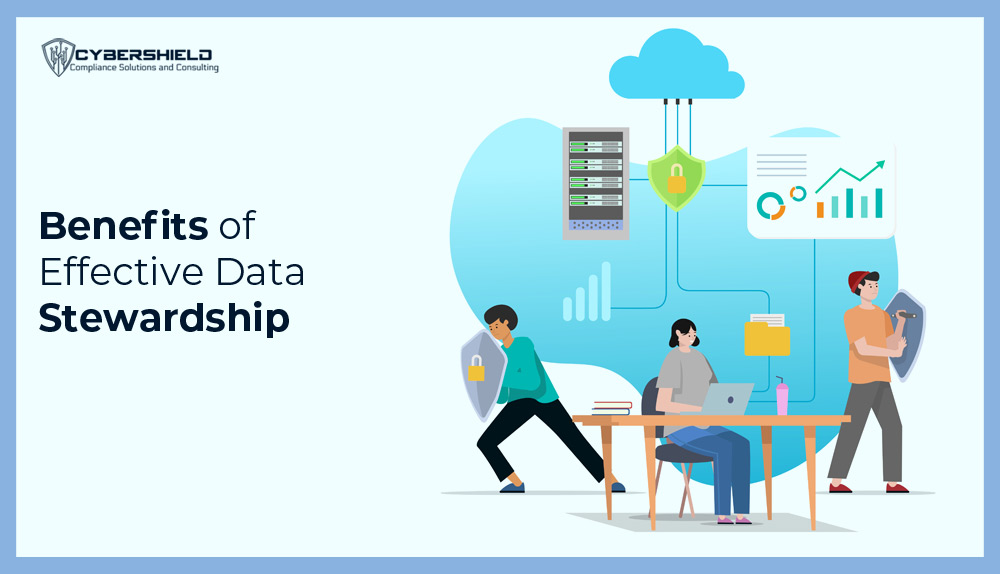Protect Your Data and Reputation: How Confidence in Data Stewardship Breaks Down
Data stewardship refers to the process of managing and overseeing an organization’s data assets to ensure data quality, privacy, and compliance.
In a world that is increasingly prioritizing digital presence, data has evolved into more than merely an ancillary product of business processes. It represents a significant asset and plays a pivotal role in driving business success. Nevertheless, managing data entails substantial responsibilities.
When organizations neglect to fulfill these duties, they expose themselves to risks that extend beyond mere technical issues. This includes extensive data breaches, damage to reputation, regulatory penalties, and a gradual decline in trust over time.
Central to reducing these risks is the practice of data stewardship – a fundamental discipline that guarantees the integrity, security, usability, and compliance of data. Confidence in data stewardship breaks down when data quality is poor, accessibility is limited, or integration is lacking
Introduction
Modern companies are overwhelmed with information, yet few comprehend the comprehensive nature of managing it ethically. As various sectors embrace digital transformation, the likelihood of data breaches and compliance issues increases. Numerous organizations prioritize cybersecurity solutions, overlooking the cultural and structural aspects, like data stewardship, that underlie a strong cyber defense.
As such, building a strong security culture with CIS Controls must be coupled with diligent data stewardship practices to ensure long-term data integrity and regulatory compliance.
Effective data stewardship guarantees the appropriate handling and governance of data assets within organizations. In the absence of a developed strategy for data stewardship, even the most advanced tools cannot stop data breaches, resulting in severe outcomes such as:
- Legal and regulatory penalties
- Loss of customer trust
- Operational disruptions
- Tarnished brand reputation
As such, building a strong security culture with CIS Controls must be coupled with diligent data stewardship practices to ensure long-term data integrity and regulatory compliance.
What is Data Stewardship?
Data stewardship refers to the strategic oversight and responsible management of data to ensure its quality, security, accessibility, and proper usage across an organization. It goes beyond just safeguarding data; it focuses on guaranteeing that it is dependable and available to all stakeholders, including data analysts and C-suite executives.
By implementing stewardship, businesses can secure data privacy, meet regulatory standards, and promote transparency.
Core responsibilities of data stewardship include:
- Defining and enforcing data standards and policies
- Ensuring data accuracy and consistency across systems
- Preventing unauthorized access or manipulation
- Facilitating collaboration between IT and business users
Why is Data Stewardship Important?
Without effective management, data turns into a liability rather than an asset. As data becomes increasingly spread out across various tools and teams, the significance of proper stewardship grows even more.
- Prevention of Data Breaches: Clear accountability over data ownership reduces vulnerabilities that cybercriminals exploit.
- Compliance with Regulations: Stewardship ensures your data handling meets regulations like GDPR, HIPAA, and CCPA, helping you avoid costly fines.
- Improved Data Quality: Accurate and standardized data support better analytics, decision-making, and business outcomes.
- Trust and Transparency: Organizations that manage data responsibly build long-term trust with customers, partners, and regulators.
- Business Agility: Reliable data fuels digital transformation and innovation, empowering faster, data-driven decision-making.
Benefits of Effective Data Stewardship

A strong data stewardship program brings measurable benefits across the organization.
- Operational Efficiency
Clean, standardized data reduces duplication, errors, and rework. - Stronger Cybersecurity
Data stewards contribute to data leak prevention strategies by ensuring sensitive information is properly labeled, stored, and encrypted. - Cost Savings
Avoid penalties due to non-compliance and reduce costs associated with bad data (estimated to be trillions globally). - Better Decision-Making
Accurate, complete, and timely data leads to informed decisions, boosting business performance. - Increased Customer Loyalty
By protecting customer data, organizations build trust, a key differentiator in competitive markets.
Data Stewardship vs. Data Governance
While closely related, data stewardship and data governance serve distinct roles.
- Data Governance refers to the overall framework, policies, roles, and metrics that guide enterprise data management.
- Data Stewardship is the tactical execution of these governance policies.
Think of governance as the strategy, and stewardship as the boots on the ground making it happen.
Effective governance without stewardship is theory without practice. Stewardship ensures policies are applied consistently and effectively, turning compliance mandates into everyday behavior.
Who Are Data Stewards and How Do They Enforce Governance?
Data stewards are individuals appointed to ensure the quality and compliance of data within specific domains. They bridge the gap between technical teams (IT, cybersecurity, data engineers) and business units (marketing, HR, finance).
They are the guardians of data trust and act as catalysts for nurturing a security culture across departments.
Key Responsibilities:
- Enforcing data policies and standards
- Collaborating with data owners and custodians
- Reviewing and resolving data quality issues
- Training users on data protocols
- Supporting audits and compliance reporting
What’s Next for Data Governance and Data Stewardship?
As businesses accelerate their adoption of cloud platforms, AI tools, and decentralized data models, data stewardship is entering a new era.
Emerging trends include:
- Automated Data Stewardship using AI and ML to flag anomalies and standardize metadata
- Data Mesh Architecture, where stewardship is embedded across distributed teams
- Real-time Data Lineage, enabling full visibility of how data is sourced, transformed, and used
- Data Democratization, empowering non-technical users to access and use governed data securely
Modern stewardship isn’t just about maintaining spreadsheets and metadata. It’s about empowering teams with governed, secure, and high-quality data at scale.
Conclusion
In an era of rampant cybersecurity risks every business faces, building a strong data stewardship framework isn’t optional – it’s essential. From safeguarding against data breaches to establishing a strong security culture with CIS Controls, stewardship empowers businesses to manage their most valuable asset—data—with confidence.
Organizations that neglect this responsibility may face costly fines, public backlash, and irreversible trust damage.
With Cybershield CSC, data stewardship evolves from a manual, painful task to a streamlined, intelligent process that scales. This is the first time to avoid costly fines & data breaches!
The time to act is now. Protect your data. Protect your brand.

